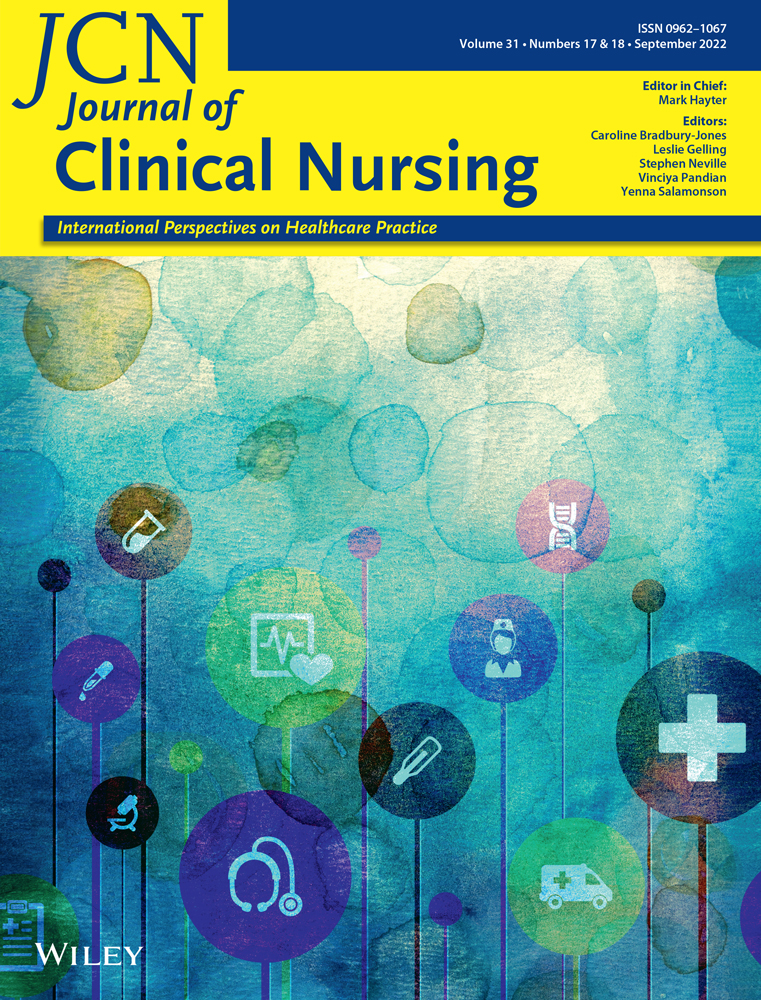Using the Theory of Planned Behaviour to assess nursing and allied health students' knowledge and intention to care for patients with COVID-19
Funding information
This study was self-funded.
Abstract
Aims and Objectives
To assess nursing and allied health students' demographics, knowledge and intentions to care for patients with an infectious disease, COVID-19.
Background
COVID-19 has caused a public health crisis and worldwide panic. Little is known about students' knowledge levels and intentions to care for infected patients during pandemics.
Design
A quantitative, cross-sectional study.
Method
A cross-sectional study with a convenience sample (N = 480) of nursing and allied health students was analysed using the Mann–Whitney and Spearman's correlation tests.
Results
At least 60% of the participants attained high scores for 16 of the 22 items on the knowledge scale. Knowledge was positively associated with attitude (rs = .19, p < .01) and perceived behavioural control (rs = .38, p < .01) and negatively associated with subjective norms (rs = −.11, p < .05). Senior students had higher scores (p = .024) in knowledge. Intention was negatively correlated with knowledge (rs = −.24, p < .01) and perceived behavioural control (rs = −.16, p < .01). Male students (p = .031) and younger students had higher scores in intention (p = .040). Males had higher scores in subjective norms (p < .001), and older and senior students had higher scores in perceived behavioural control (p < .001).
Conclusions
Despite the current knowledge on COVID-19 available through multimedia-communication channels, students had negative perceived behavioural controls and intentions to care for COVID-19 patients. Formal education and training are required to enhance students' intentions to care for patients with infectious diseases. Additionally, demographics and belief variables influence students’ intentions to care, and further in-depth analysis is required.
Relevance to Clinical Practice
This study suggests the importance of updating and contextualizing nursing and allied health curricula to meet global infectious disease guidelines and, ultimately, to support the healthcare system with efficient practitioners in future pandemics.
CONFLICT OF INTERESTS
The authors declare no potential conflicts of interest concerning the authorship, research, and publication of this article.
Open Research
DATA AVAILABILITY STATEMENT
Data available on request due to privacy/ethical restrictions.




